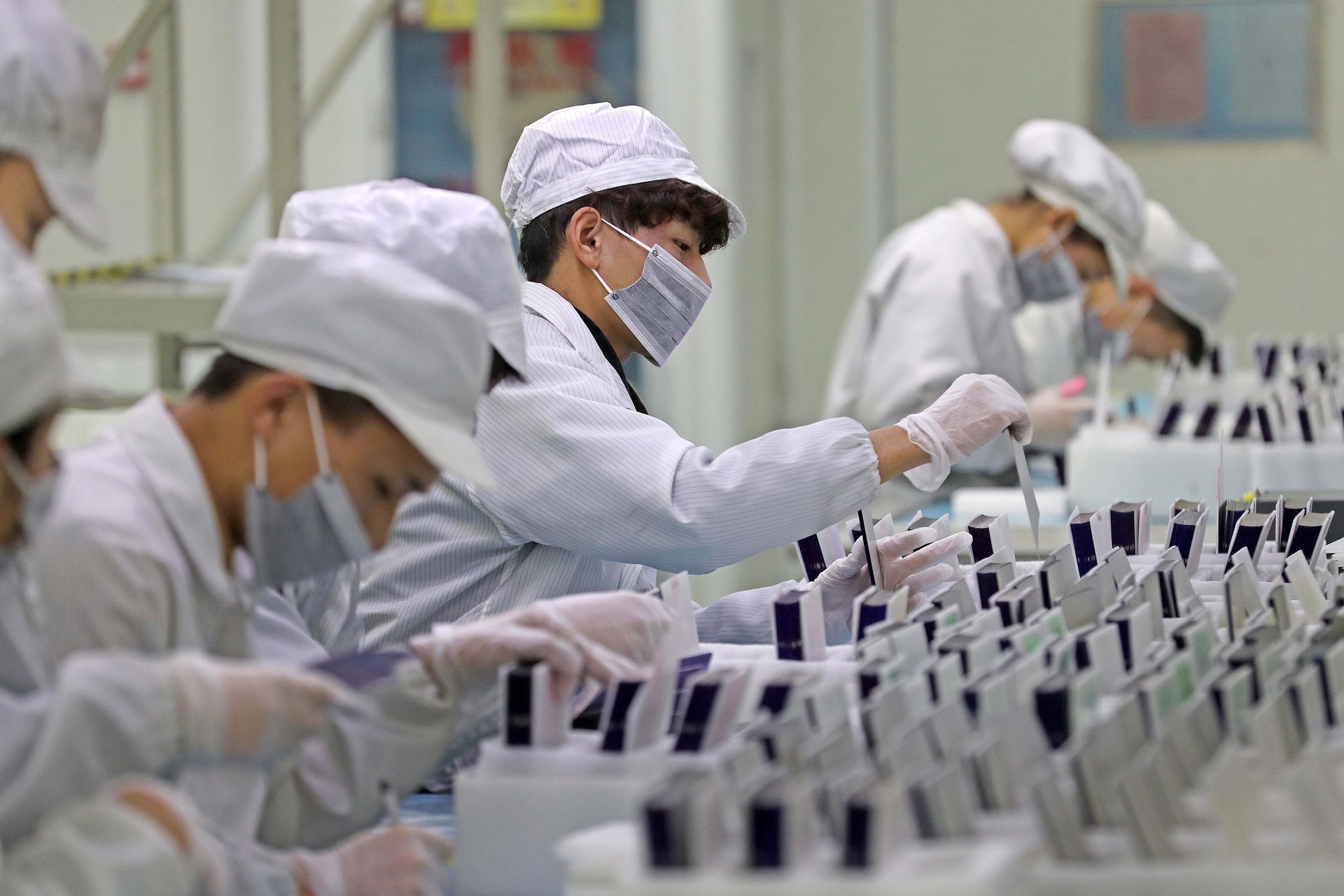Virus fears will slow China’s factories despite a long holiday finally ending
The effect of the coronavirus epidemic on the Chinese and global economy could prove much worse than a US-China trade war. The extended Lunar New Year holiday will come to an end on Monday, Feb. 10 across much of China, but the “world’s factory” won’t return to normal anytime soon.


The effect of the coronavirus epidemic on the Chinese and global economy could prove much worse than a US-China trade war. The extended Lunar New Year holiday will come to an end on Monday, Feb. 10 across much of China, but the “world’s factory” won’t return to normal anytime soon.
As governments at all levels in China take extreme measures to contain the virus, firms cannot return to work until the authorities say so. China’s central government commanded that no business should return to work before Feb. 3. More than half of the provincial governments extended the work ban to Feb. 9 or later, a discretionary measure meant to ensure that migrant workers who traveled to heavily infected regions would not come back to work too soon. Some international car manufacturers in China plan to restart production in the next two weeks, while others are still figuring out the exact date.
Manufacturers must follow new rules issued by local authorities before they can restart production. The guidelines of Guangzhou, for example, outline a series of preventive measures, including documenting the whereabouts of employees, taking daily temperatures, stocking up on protection gear (face masks, protection glasses, gloves), and sanitizing all work areas. A Foxconn iPhone factory in the city of Zhengzhou failed the public health inspection and will not be allowed to resume work Monday.
When companies finally manage to open again, they won’t be fully staffed for a while. The 280 million migrant workers in China aren’t returning to work on their usual schedule. Wuhan and other cities in Hubei province are still cut off from transportation, preventing people from leaving the area. Migrant workers from elsewhere would under new guidelines have to stay at home 14 days before they can return to their posts. Shanghai’s police department issued emergency measures (link in Chinese) that asked all businesses to register employees who came back from outside the city and arrange isolation facilities for them for 14 days. One effect will be China’s unemployment rate increasing by 0.5% in the first quarter, predicts Du Yang, vice director of the Population and Labor Economic Research Center at the Chinese Academy of Social Sciences.
If Chinese businesses cannot resume normal production levels soon, the global manufacturers who rely on China would have to source their supplies elsewhere. The slowdown in production creates more severe damage than an additional 10% tariff on Chinese goods, Renaud Anjoran, chief executive of quality assurance and engineering firm Sofeast, told the Wall Street Journal.
Chinese health officials say people with the Wuhan virus can be infectious before showing symptoms, and that the disease has an incubation period of up to 14 days. That means the first two weeks post-holiday pose a great risk of the disease spreading as workers come back to the city, take busses and subways, eat out together, and hold meetings in small rooms.
Despite its utmost urgency, then, restarting production is still a difficult decision for businesses to make.